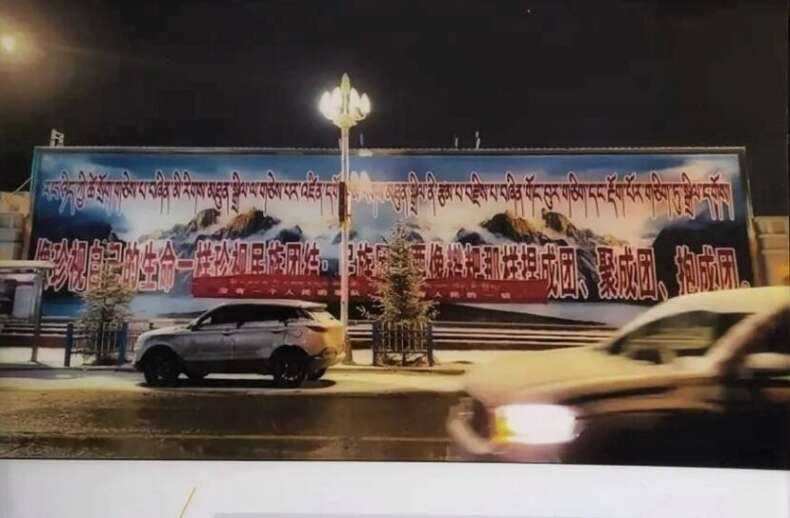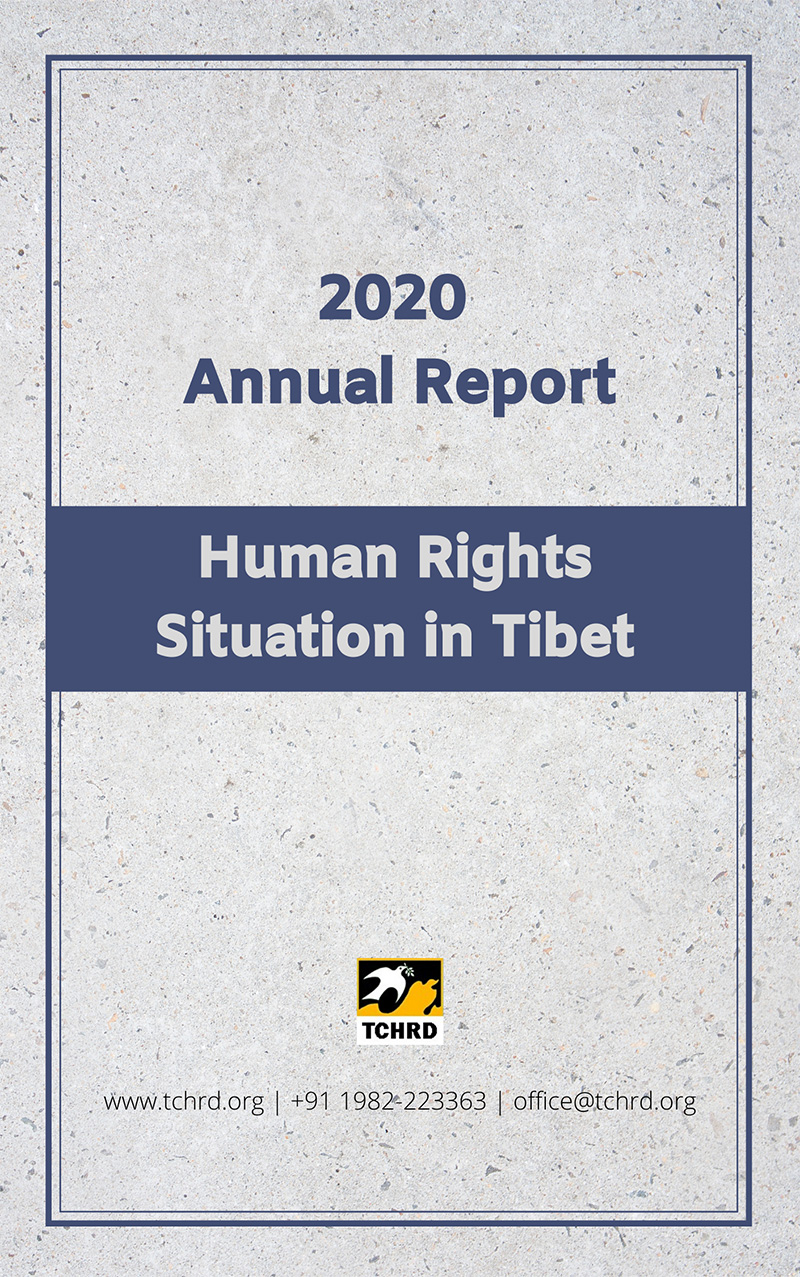2024 年,随着中国当局加强中国化、强迫流离失所和压制基本⾃由的政策,西藏
的⼈权状况进⼀步恶化。这⼀年的特点是;对宗教机构和学校的打压升级、任意
拘留、环境掠夺和针对海外藏⼈的跨国镇压。


2024 年,随着中国当局加强中国化、强迫流离失所和压制基本⾃由的政策,西藏
的⼈权状况进⼀步恶化。这⼀年的特点是;对宗教机构和学校的打压升级、任意
拘留、环境掠夺和针对海外藏⼈的跨国镇压。

西藏人权与民主促进中心在十一世班禅喇嘛 33 岁生日的第二天,在达兰萨拉举行的新闻发布会上发布了《2021 年西藏人权状况年度报告》。这份报告以藏文、中文和英文三种语言提供,记录了中华人民共和国政府持续和严重侵犯人权的行为,包括任意拘留和酷刑、宗教镇压以及广泛镇压言论和信息自由的权利。

The 2020 Annual Report on the human rights situation in Tibet, released online today in three languages: Tibetan, Chinese and English, presents a disturbing picture of deprivation and abuses, marked by persistent and…

The Tibetan Centre for Human Rights and Democracy is pleased to announce the release of 2019 Annual Report: Human Rights Situation in Tibet earlier today in Dharamsala, India. The report documents China’s ruthless…

2018 has been a pivotal year for human rights in Tibet and the People’s Republic of China (PRC). The introduction of new policies and regulations has led to an increased restriction on human rights and lives of the Tibetan people. This has resulted in the arbitrary detention and arrest of Tibetans, who have been exercising their rights to peaceful assembly, freedom of movement, religious and culture freedom and their right to an adequate standard of living, among others.
The introduction of a nationwide campaign in January 2018 to eliminate all forms of ‘organised crime’ and ‘evil forces’ codified long-standing instances of human rights violations in Tibet. Although a campaign of this nature is not new in Tibet, the scope of the activities it publicly criminalises is unprecedented, as it covers activities related to social welfare and Tibetan cultural practices, and other civil society initiatives to improve the lives of ordinary Tibetans. In reality, the so-called ‘war on organised crime’ is being waged to expand and strengthen the Chinese Communist Party influence and networks at lower-level jurisdictions and primarily in rural areas. As seen in the past, the increased efforts to “strengthen political power at the grassroots level” have led to an unprecedented tightening of control and political repression in Tibetan areas, turning Tibet into a human rights black hole.
Tibetans are subjected to arbitrary arrest and detention with prolonged period of criminal detention, allowing Chinese officials to escalate their unlawful practices by means of violence and torture to obtain forced confessions. Tibetans face obstacles to have access to a fair trial, especially if the charges held against them are of a political nature. Indeed, very few got to exercise this right in formal proceedings.
Tibetans’ inability to travel within and outside of Tibet has been steadily growing. The numerous checkpoints and roadblocks, along with the barriers to obtaining a passport has made it near impossible for Tibetans to travel, with some experts noting that circumambulating around the Potala Palace in Lhasa is now more difficult than getting into an airport.
The right to freedom of religion and belief is targeted by the Party’s two-pronged policy on religion such as ‘adapting religion to socialism with Chinese characteristics’ and ‘sinicising Tibetan Buddhism’. This has led to the enforced enrollment of young Tibetan monks into Chinese government schools and the prevention of Tibetan language workshops to be held in local monastic institutions.
The presence of a healthy environment and an adequate standard of living continue to decline rapidly as Tibetans have been unable to influence policy decisions to diminish the effects of river pollution, grassland degradation and desertification, land tenure security, among others.
The 2018 annual report highlights the continued human rights violations that occur in Tibet on a daily basis, without intervention from the international community. To read the full extent of the PRC’s impact on the Tibetan people in 2018, click on the link.

The Tibetan Centre for Human Rights and Democracy (TCHRD) released today the 2017 Annual Report on Human Rights situation in Tibet at a press conference held at the conference hall of Library of…

The party-state of the People’s Republic of China (PRC) continued its egregious human rights violations and abuses in Tibet by criminalizing basic human rights and freedoms, and engaging in arbitrary detention, torture,…

The Tibetan Centre for Human Rights and Democracy (TCHRD) released today the 2015 Annual Report on human rights situation in Tibet in Dharamsala, India. The annual report is available in Tibetan, English and…

Annual Report – TCHRD – 2012 by
Annual Report – TCHRD – Tibetan – 2012 by